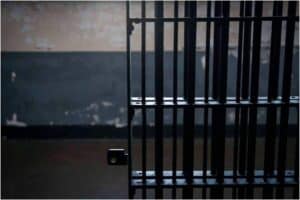The difference is the mythical Hercules succeeded with the Augean stables in just a day. The admirably dogged Auditor-General has had to labour for seven years, only to see the manure pile grow.

Greek hero Hercules and Auditor-General Kimi Makwetu have at least one thing in common: they were both tasked with getting rid of decades of accumulated dung.
The difference is the mythical Hercules succeeded with the Augean stables in just a day. The admirably dogged Makwetu has had to labour for seven years, only to see the shit pile grow.
Makwetu’s approach has always been low key. Nevertheless, in each of his annual reports covering provincial and national entities, he has been unsparing in his warnings. But to best trace the unravelling of SA, one should look to his annual report on local government.
And what a disaster it has been. Let’s just take the past three years of decline.
For the 2015-16 financial year, 18% of the 257 municipalities got clean audits. In 2017-18 that was down to 14% and it is now at 8%. Irregular spending was R16.6 billion. The next year it rose to R24.4 billion and is now R32 billion.
In 2015-16, 27% of municipalities were found to be financially unsustainable. By the end of the 2017-18, 33% were technically bankrupt, while 76% needed “urgent intervention”.
The latest report shows that more than a third of municipalities are in the red. Makwetu assessed 79% of them needing urgent intervention and 91% as not legislatively compliant.
More than a fifth lack a chief financial officer and/or a municipal manager. When they do exist, they are mostly politically deployed cadres – in 2016-17, Makwetu’s report found 170 of the CFOs had no qualifications for the job. Aside from a party membership card, that it.
Despite spending R1.26 billion on outside accountancy firms, almost 60% of the municipalities “produced material misstatements in the areas in which consultants did the work”.
Salaries and wages amounted to 40% of revenue in 2018-19, up from a Stats SA estimate of 26% in 2014-15. Undaunted, municipalities are budgeting now for an average wage increase in the region of 7% this year.
The assumption is that central government and long-suffering ratepayers will provide. But the assumption is flawed.
Straitened economic circumstances and ratepayer resistance are coalescing, with more people every year not paying for services or rates.
So, it is not surprising that in 93% of municipalities, more than 10% of the debt reflected on books is considered to be irrecoverable.
More than two-thirds of municipal performance reports were so flawed that they are “not credible enough for the council or public to use”. In other words, works of fiction.
More than a quarter of municipalities have no road infrastructure plan, 41% no water plan and 41% no sanitation plan. Such figures give statistical precision to any sense ratepayers might have of the neighbourhood going to shit.
The problem is that the plight facing the ANC is now of such a magnitude that denial is the only way of coping with Makwetu’s reports.
Every year, there are promises of improved oversight, performance management, and accountability. Every year matters get worse. The latest ANC solution is a poorly articulated plan for provincial command councils.
Just as the National Coronavirus Command Council, only vaguely overseen by parliament, now runs the country, the new command councils, run by unelected party apparatchiks, will supposedly champion good governance in the slacking provinces and municipalities.
Just more shovelling of manure.
William Saunderson-Meyer.
For more news your way, download The Citizen’s app for iOS and Android.






